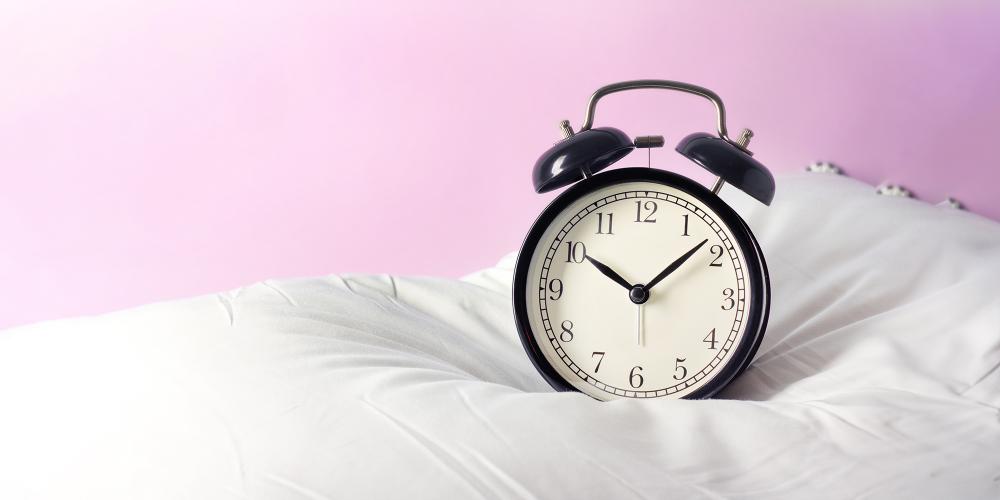
The Benefits Of 43 Minutes Of Extra Sleep
The NHS recommends anywhere between six and nine hours of sleep a night for adults. Most of us aim for somewhere between seven and eight. While it goes without saying that regularly getting less than six hours of shut-eye a night can leave you feeling bleary eyed, tired and grouchy the next day, there could be other benefits to getting more sleep.
Research from Penn University* found that getting 43 minutes of extra sleep has the potential to not only ensure you feel less sleepy the following day but could also help lower blood pressure. The two week study focused on 53 students. They were deemed the best candidates, as it’s thought that over a third of young adults get less than seven hours of sleep a night. The students were asked to wear wrist sensors to monitor their sleep patterns and were tasked with trying to squeeze in an extra hour of sleep every day. Researchers concluded that 43 minutes was the sweet spot in terms of maximising the health benefits, as well as being realistic enough to fit into busy schedules.
While the results could be more prominent in this age group compared to older generations considering the lower levels of sleep to begin with, it is yet another study highlighting the importance of slowing down and prioritising sleep. As the festive season begins, it’s definitely something to keep in mind as your schedule begins to fill up. And for those who struggle to get their forty winks, there are a few things that could help.
How to get more sleep?
There are numerous sleep supplements available that can help you, and while some can make a noticeable difference, it’s important to look at your lifestyle as a whole if you are someone who rarely gets the full eight hours. Reducing your stress levels, sticking to a regular routine and cutting back on sugar and alcohol are some of the key changes towards achieving better sleep.
Set the scene: There’s a reason why This Works Deep Sleep Pillow Spray is a bestseller—the clever blend has been shown to help speed up the time it takes you to fall asleep. Simply mist your pillow just before you hit the hay and take a couple of deep breaths. It won’t be instant, but you should drift off more easily than usual. It also helps to block out any natural light in your bedroom, keep the temperature below 21°C and ban any screens and blue light.
Top-up essential minerals: Magnesium is a key mineral and is especially important when it comes to sleep as it helps us relax. Magnesium deficiencies are surprisingly common and a lot of us can benefit from taking a magnesium supplement regularly. However, it’s thought that bathing in the mineral is one of the best ways to absorb it. Better You Magnesium Oil Original Flakes are particularly effective because they contain magnesium chloride, which is easier for your body to absorb.
Sleep aides: There are plenty of sleep specific supplements to help you unwind, relax and drift off. Shabir recommends Sleep Tight Plus by DoSe by VH, a sleep remedy containing traditional herbs and nutrients which help regulate your sleep patterns and calm a whirling mind.
Reference: STUDY: An Extra 43 Minutes of Sleep a Night Could Improve Health*
DISCLAIMER: The views, opinions and information expressed in this article and on Victoriahealth.com Ltd are those of the author(s) in an editorial context. Victoriahealth.com Ltd cannot be held responsible for any errors or for any consequences arising from the use of the information contained in this editorial or anywhere else on the site. Every effort is made by the editorial and content team to see that no inaccurate or misleading information, opinion or statement appear, nor replace or constitute endorsement from medical bodies or trials unless specified. Victoriahealth.com Ltd accept no liability for the consequences of any inaccurate or misleading data, information, opinion or statement. Information on Victoriahealth.com Ltd and in the editorials is provided for informational purposes only and is not intended as a substitute for the advice provided by your physician or other healthcare professional. You should not use the information on this website or in the editorials for diagnosing or treating a health concern or disease, or for the replacement of prescription medication or other treatment.